ADB Trains 233 Filipino Finance Professionals in International Auditing, Accounting, and Banking Standards for Islamic Finance
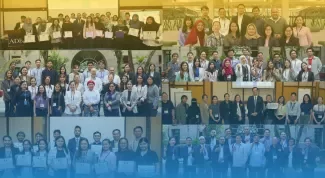
ADB, the Bangko Sentral ng Pilipinas (BSP), and the Islamic Finance Advisory & Assurance Services (IFAAS) conducted a series of advanced courses on Islamic banking and finance at ADB Headquarters in Mandaluyong City, Philippines, from October to December 2024.
ADB, BSP, and IFAAS experts designed the courses and training materials to help representatives of various Philippine institutions participate in, promote, and/or regulate Islamic finance. These experts took into account the specific needs and roles of the participating institutions which include —
- Government agencies, particularly the Bangko Sentral ng Pilipinas, the Department of Finance, the Department of Trade and Industry, the Bureau of the Treasury, the Insurance Commission, the Securities and Exchange Commission, and the Financial and Sustainability Reporting Standards Council;
- Islamic authorities and organizations, including the Bangsamoro Autonomous Region in Muslim Mindanao, the National Council on Muslim Filipinos, the Islamic Affairs Office of the Kapai Municipality, and the Philippine Ulama Congress Organization;
- Banking institutions such as Al-Amanah Islamic Investment Bank of the Philippines, Bank of the Philippine Islands, CARD Bank, Development Bank of the Philippines, Maybank Philippines, Silahis Bank, Bankers Association of the Philippines, and Rural Bankers Association of the Philippines; and
- Audit and accounting firms such as Isla Lipana & Co, PWC Philippines, R.G. Manabat & Co, SGV & Co.
Accordingly, course offerings ranged from in-depth overviews of the Islamic financial system to more specialized topics for professionals responsible for managing financial products, formulating policies, or enforcing regulations.
The first round of training took place on 21–25 October, with three courses. The first, Islamic Finance Foundations, dealt with foundational principles of Islamic finance. The Intermediate Course on Takaful focused on the core principles of Islamic insurance. The Accounting and Auditing Organization for Islamic Financial Institutions (AAOIFI) Shariah Standards Course tackled the principles which ensure Shariah compliance and transparency in Islamic financial institutions.
Explore the Week 1 image gallery. (Please click photo collage.)
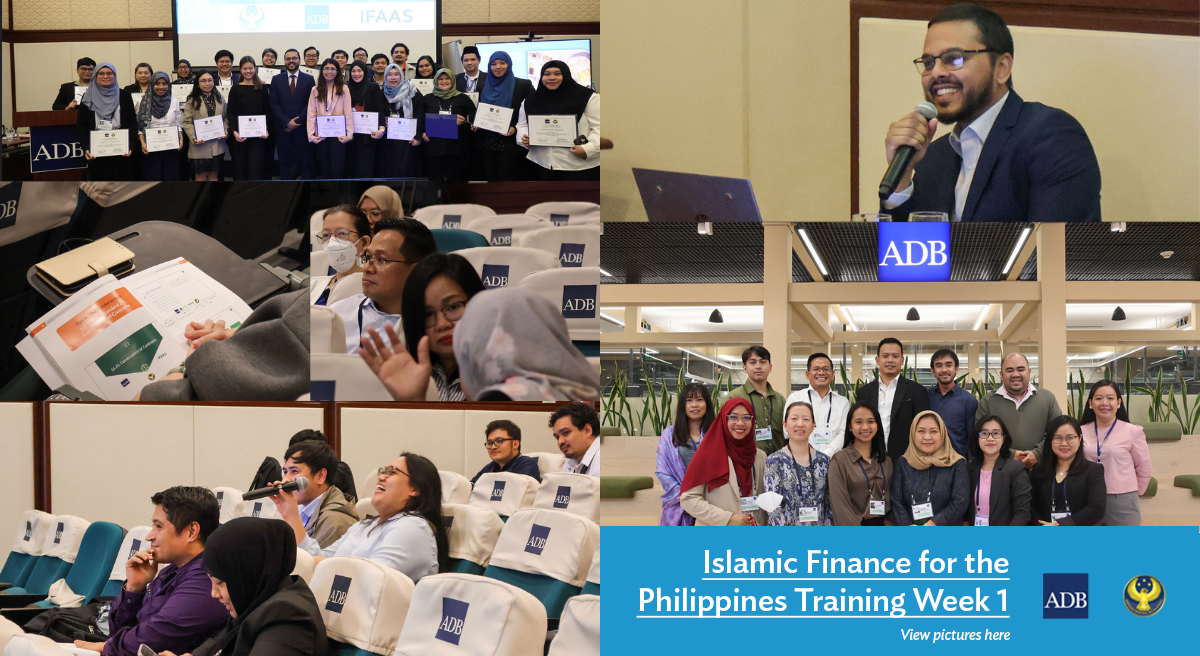
The second round of training, consisting of four courses, was held on 4–8 November. Islamic Finance Overview for Market Players gave an overview of the Islamic finance sector. The Monetary Operations Framework Course dealt with the theoretical and practical aspects of monetary policy implementation in an Islamic financial system. The Intermediate Course on Islamic Capital Markets tackled Islamic asset management, Islamic investment funds, and Islamic structured products. Finally, the Intermediate Course on Shariah Audit delved into Shariah governance, Shariah audit, and their objectives and processes.
Explore the Week 2 image gallery. (Please click photo collage.)
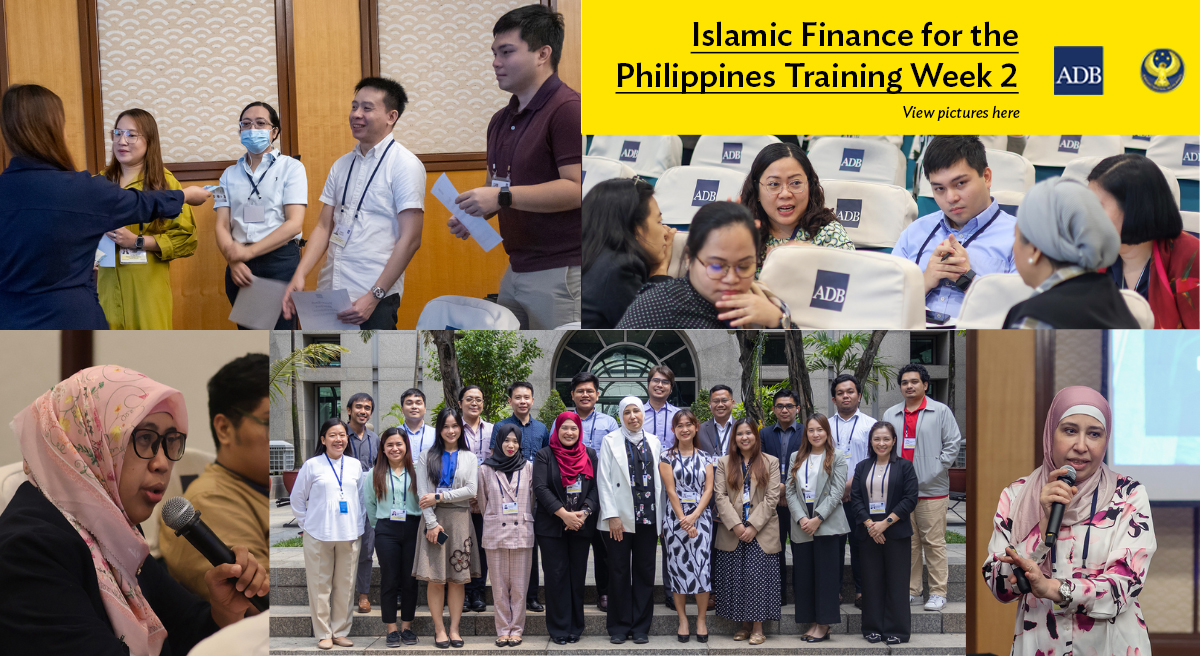
The third round of training, on 11–15 November, featured five courses. The AAOFI Shariah Standards (Arabic) Course was an in-depth session that focused on the AAOIFI Shariah Standards in their original Arabic text and was conducted entirely in Arabic. Additionally, there were five courses on Islamic Financial Services Board (IFSB) Standards, beginning with the IFSB Standards-General Course, and progressing into more specialized topics on IFSB Standards-Takaful, IFSB Standards-Capital Markets, IFSB Standards-Capital Markets, and IFSB Standards-Banking.
Explore the Week 3 image gallery. (Please click photo collage.)
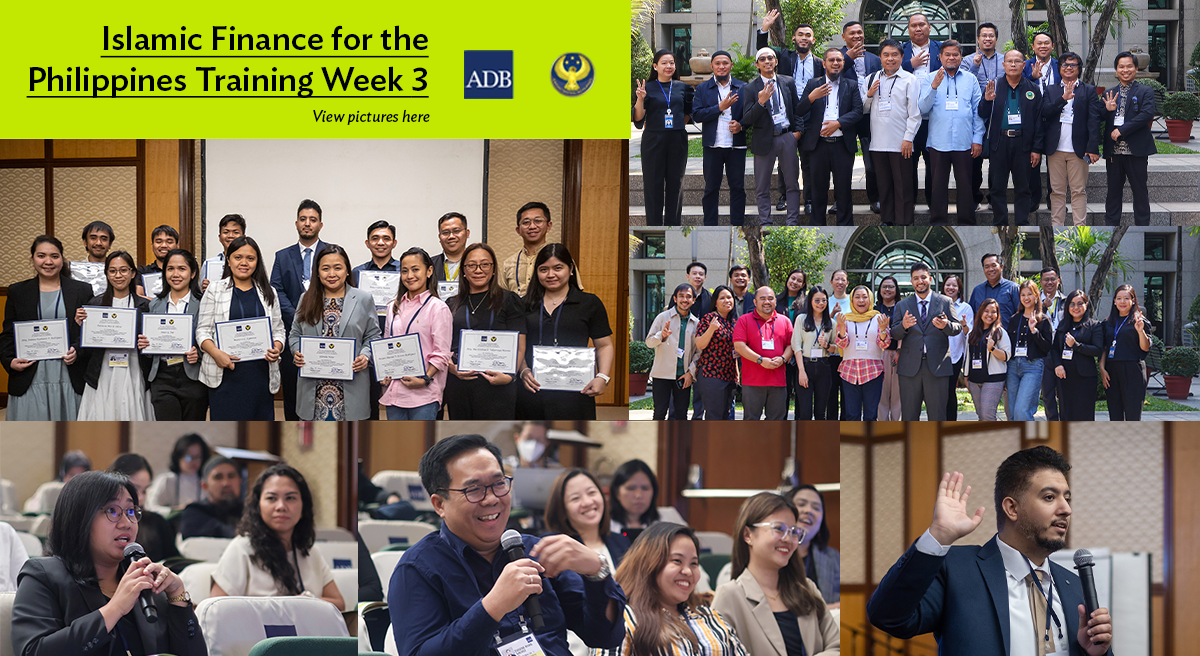
The final course on AAOFI Accounting Standards was held on 9–13 December, focusing on accounting standards for various Islamic financial products that also align with global accounting standards to the maximum extent possible.
Explore the Week 4 image gallery. (Please click photo collage.)
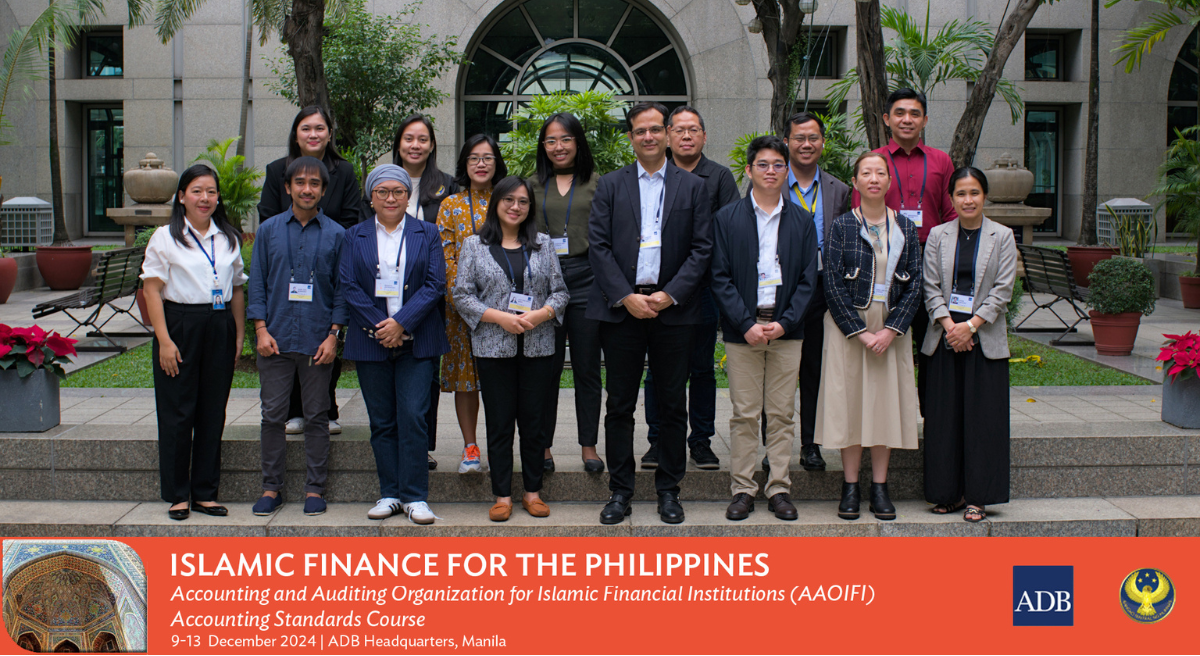
In total, the courses provided guidance to 233 people performing various roles within the Philippine Islamic finance sector. Many expressed their appreciation for the course content’s relevance and usefulness to their specific professions and work functions. One participant shared that “…understanding the accounting standards relevant to Islamic contracts [deepened] my understanding of the Islamic controls, especially [those] relevant to our drafting guidelines in issuing sukuk.” Another asserted that “… Valuable inputs from the training and knowledge sharing from other participants will greatly contribute [to] crafting better policies and amendments to existing regulations.”
These participants were the last cohort to undergo training under ADB’s Islamic Finance for the Philippines Technical Assistance (TA), which was implemented by ADB’s Law and Policy Reform Program. This TA ended in December 2024. During its seven-year span, it heralded landmark breakthroughs in Philippine Islamic finance and supported the training of over 1,500 regulators and finance professionals.